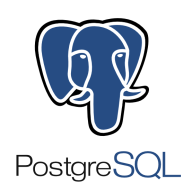

PostgreSQL and ClickHouse are two powerful solutions competing in the database category. PostgreSQL appears to have the upper hand in versatility and feature support, making it suitable for complex SQL tasks, whereas ClickHouse holds an advantage in speed for big data processing and real-time analytics.
Features: PostgreSQL offers extensive SQL standards support, exceptional procedural language options, and scalability for write-heavy operations, making it a versatile, cost-effective solution. In contrast, ClickHouse is optimized for speed, effectively handling vast datasets and real-time queries, coupled with strong data compression, beneficial for analytics and rapid data retrieval.
Room for Improvement: PostgreSQL can enhance its read performance, further extend SQL features, and streamline installation. Improvements in replication and partitioning would markedly benefit users. ClickHouse could enhance compatibility with traditional SQL syntax and ease integration with third-party tools, minimizing setup effort and promoting broader adoption.
Ease of Deployment and Customer Service: PostgreSQL is deployable across various environments, though it necessitates considerable technical expertise. Its community provides robust support in lieu of formal customer service. ClickHouse is well-suited for cloud deployments but may require additional expertise for conventional setups. Both rely on active community engagement for user support.
Pricing and ROI: Being open-source, both PostgreSQL and ClickHouse offer significant cost benefits over proprietary alternatives. PostgreSQL is especially advantageous for feature-rich applications, providing a low TCO and strong ROI. ClickHouse facilitates cost-effective scaling for data-intensive tasks and real-time analytics, though cloud-based implementations might entail extra maintenance costs.


ClickHouse is renowned for its speed, scalability, and real-time query performance. Its compatibility with SQL standards enhances flexibility while enabling integration with popular tools.
ClickHouse leverages a column-based architecture for efficient data compression and real-time analytics. It seamlessly integrates with tools like Kafka and Tableau and is effective in handling large datasets due to its cost-efficient aggregation capabilities. With robust data deduplication and strong community backing, users can access comprehensive documentation and up-to-date functionality. However, improvements in third-party integration, cloud deployment, and handling of SQL syntax differences are noted, impacting ease-of-use and migration from other databases.
What features make ClickHouse outstanding?ClickHouse is deployed in sectors like telecommunications for passive monitoring and is beneficial for data analytics, logging Clickstream data, and as an ETL engine. Organizations harness it for machine learning applications when combined with GPT. With the ability to be installed independently, it's an attractive option for avoiding cloud service costs.
PostgreSQL is a versatile and reliable database management system commonly used for web development, data analysis, and building scalable databases.
It offers advanced features like indexing, replication, and transaction management. Users appreciate its flexibility, performance, and ability to handle large amounts of data efficiently. Its robustness, scalability, and support for complex queries make it highly valuable.
Additionally, PostgreSQL's extensibility, flexibility, community support, and frequent updates contribute to its ongoing improvement and stability.
We monitor all Open Source Databases reviews to prevent fraudulent reviews and keep review quality high. We do not post reviews by company employees or direct competitors. We validate each review for authenticity via cross-reference with LinkedIn, and personal follow-up with the reviewer when necessary.